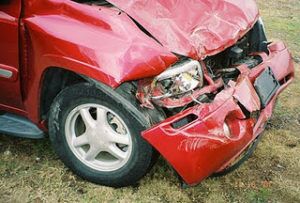
The cost of hiring a lawyer to handle your vehicle damage claim is generally not practical. The cost of direct attorney assistance is too high. Even a lawsuit without a lawyer’s assistance may not be a reasonable option. A lawsuit takes time. When your primary objective is to get your car repaired as quickly as possible, the time required for a lawsuit can be counter-productive. We hope these FAQ’s will aid you in negotiating your vehicle damage claim without having to hire a lawyer.
- Q: Is it possible to avoid owing money to the bank on my totaled car when I’m upside down (ie: when you owe more on your car than it is worth)?
A: You can talk to your lender and see if they are willing to allow you to have your car repaired, despite the car having been declared totaled, or see if they are willing to do a substitution of collateral. - Q: What is substitution of collateral?
A: Substitution of collateral is when a lender agrees to substitute the totaled motor vehicle with a comparable vehicle in order to allow you to finish paying off your loan. N.C. Gen. Stat. §25A-26 allows for the substitution of collateral in consumer credit sales, but allows the seller to charge a fee that is capped at 10 % of the unpaid balance of the debt or $15.00, depending on the lesser amount. - Q: How can I get my “totaled” vehicle fixed if I owe more than its worth?
A: The insurance company most likely will not pay for repairs on a car they have evaluated as being a total loss. Therefore, you will need to approach the shop you are using to repair the car and find out if they are willing to fix the car for the amount that the insurance company is paying for the total loss. Before this is possible, you need to get the lienholder’s approval since their name is on the check as well. Please note that there is no guarantee, if you take this route and therefore, you undertake it at your own risk. - Q: What about charges for towing and reasonable storage
A: If the insurance company deems that your car is repairable, then they are responsible for towing and reasonable storage fees “until three days after the owner and storage facility are notified in writing that the insurer will no longer reimburse the owner or storage facility for storage charges.” 11 N.C.A.C. 4.0418(6). - Q: My car was towed after the accident. How do I retrieve my personal items?
A: Contact the towing company and find out what the rules and policies are for picking up your personal items. Most likely, identification will be required before you are able to receive access to your vehicle and your personal items. - Q: When am I entitled to a rental car?
A: The insurance company should pay for you to have a rental car for a reasonable amount of time. The insurance company should either place you in a rental or reimburse you for your rental car. Normally, this is during the time in which your car is being prepared or while the insurance company is deciding how much your car is worth. Once the insurance company has made a reasonable offer to pay you for your totaled car, or once your car has been repaired, you will need to turn in your rental vehicle. - Q: What kind of rental am I entitled to?
A: The insurance company should place you in a similar vehicle. If you have a handicap or have a need for a specific type of rental, let the insurance company know. - Q: Do I need to purchase the extra insurance coverage suggested by the rental car company?
A: Depends on your own motor vehicle insurance policy. You should check with your insurance company first and find out how much coverage you have under your policy to determine whether you need to purchase additional coverage. Normally, the insurance company is not obligated to pay you back for this additional coverage. - Q: What if the insurance company or responsible driver wants me to sign a release?
A: Do not sign a release until you are 100% satisfied with your settlement. Also, make sure that the insurance company is not also including your personal injury claim in the release. Have your attorney take a look at the release to ensure that your rights are protected.
- Q: What if I have problems or additional questions regarding my property damage?
A: If you have additional property damage questions, you should contact your attorney and see if he or she can answer them for you.
*Photo courtesy of adam*b by way of Flickr Creative Commons.





Leave a comment